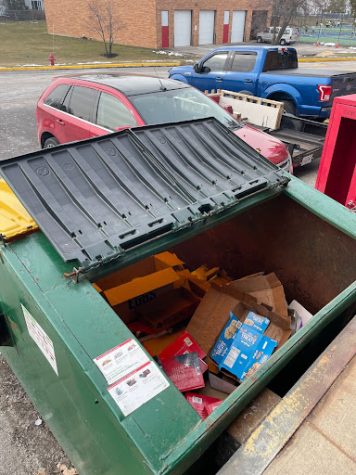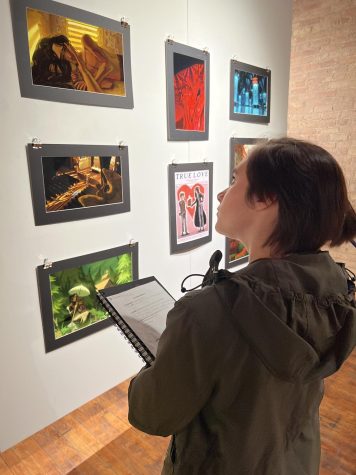MHS delays anticipated hybrid learning model to second semester
December 16, 2020
Due to a recent spike in cases of COVID-19, the first semester of the 2020-21 school year was spent entirely online, an unprecedented occurrence at MHS. The hybrid learning model introduced this fall, which was originally scheduled to begin in November, has been delayed to the second semester.
Stacey Gorman, Assistant Superintendent of Teaching and Learning, said the reason for the delay of starting the hybrid schedule is because, after holding “weekly meetings to examine the changing rates in COVID outbreaks,” they found it wasn’t safe to return due to the second wave of mass COVID-19 cases.
“If we do move to a hybrid schedule in later times, administration will continue to closely monitor this data to ensure staff and students remain healthy and safe,” Gorman said.
Superintendent Kevin Myers said the hybrid learning model was created “to provide students with an academic and social environment that engages them in the overall high school experience” and more closely resembles a typical in-person environment.
“The positives [of bringing back in-person learning] center on those ‘intangibles’ that are difficult to explain,” Myers said. “Students and teachers are both talking about the definite advantages of in-person learning. Teachers and students in a given class eventually create a classroom ‘atmosphere’ that involves the spontaneous interactions between students and teachers, and students with other students. There is also a ‘trust’ component among students and teachers that develops over time as well. It’s much more difficult to create that bond remotely, and so it takes a much longer time for ‘classroom atmosphere’ to develop. Additionally, by having students in the classroom, teachers are able to better observe how students are processing what is being taught during the lesson.”
Because the COVID-19 pandemic situation is constantly changing, it makes decision-making regarding the return to school an on-going process. The current plan for next semester is that teaching staff will begin returning to the building starting Jan. 11, whether or not students will be in the building.
“The hybrid will affect teachers in numerous ways: For some, it will allow for learning activities that are not possible during virtual learning; for others, it will create challenges when compared to virtual learning. It depends on the academic area and the specific course,” said Dean Petros, social studies teacher and Mundelein Education Association president.
Another survey has been sent out to verify each student’s choice of hybrid or online for next semester.
“Fifty-four percent of the student population chose the hybrid schedule in October. There may be a slight increase in December when families were asked to confirm or change their choice for semester 2; however, this exact number will not be known until Friday [Dec. 18],” Principal Anthony Kroll said.
The COVID-19 situation has brought with it challenges for classes and the school as a whole. Some students are eager to get back to life before 2020, so the school plans to start bringing students back into the building on a hybrid schedule once the metrics allow for it.
“With current plans, the earliest focused student groups could begin back at the school is January 24; however, this may be influenced by the COVID positivity rate in the D120 district. Students attending a hybrid schedule would come one week after focused student groups (Mustang Study, Transition, Supported Learning Program, STRIVE, course specific meetings),” Kroll said.
As school officials and administration navigate the incoming influx of information of COVID-19 to best fit students’ learning, they continue to try to work together and communicate effectively with the community.
“We are very much aware that this is a difficult situation and that students, teachers, parents and administrators are all looking for the best ways to educate our students during the pandemic,” Myers said. “We are listening to our families and our staff and will do everything that we can possibly do to provide the best education possible. As long as we are able to provide different options to meet the needs of all involved and that we follow the guidelines of the Lake County Health Department, the Illinois Department of Public Health and the Illinois State Board of Education, we will be able to offer educational alternatives that meet the needs of all our families and staff. It is an ongoing, fluid situation, and we ask everyone to be flexible as we work through the details.”
For more information about the hybrid schedule, please see the d120.org home page.


